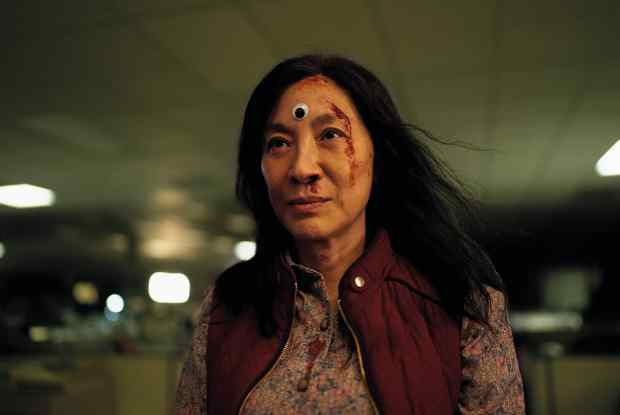These days, everyone who was knocking around a few decades ago predicted the internet. Marshall McLuhan famously predicted the internet in 1962. Orson Scott Card predicted the internet in 1986. Even David Bowie is supposed to have seen it coming. But I think Don DeLillo really did prophesise our 21st-century technological reality in his 1985 novel White Noise.
White Noise is about a lot of things (mostly, it’s one of the funniest novels ever written about death). But something weird keeps happening in the gaps. Characters are interrupted by the TV, by the radio, by a market researcher who keeps phoning them up to ask about the exact blend of fibres in their clothes. In every aspect of their lives, they’re constantly bombarded by invisible waves of data and messaging. There’s no such thing as a private life, inside, away from the chatter that descends from every corner of the world. One evening, our hero sees his own wife on the TV screen, teaching an exercise class. ‘What was she doing there, in black and white, framed in formal borders? Was she dead, missing, disembodied? Was this her spirit, her secret self, set free to glide through wavebands, through energy levels?’
DeLillo didn’t predict the internet because he was closely following developments in telecommunications; he just took the media landscape of his own era and dialled everything up to 11. He dug out the active principle behind TV and radio and advertising and let it grow into a monster.
Pretty much everyone talking about Noah Baumbach’s new film adaptation feels obliged to mention that White Noise is famously unfilmable. There’s the problem of DeLillo’s prose, and its habit of constantly heading off down weird tangents. There’s the way his characters talk, which is deeply odd. (People in DeLillo-land will have occasional conversations, but mostly they just describe themselves at length to each other, and children and adults all talk in the exact same register.) But mostly, I’m starting to suspect that the reason you can’t make a good film out of White Noise today is that it really was right about everything.
Jack Gladney is a mild middle-aged academic, the founder and leading light of the discipline of Hitler Studies. At his university, there are full professors who study ‘nothing but cereal boxes’; Hitler is just another kind of modish box. Jack and his wife have a baffling array of kids from their various marriages (four each). He is deeply, quietly afraid of death. Then one day, a toxic substance leaks into the air near his town. His children pick up dregs of information from the various media that wander into their lives, which quickly turn into misinformation. They develop symptoms in the order they’re described on the radio. Soon everyone is walking around in white facemasks, talking about how the government did it on purpose, and demanding to be on TV.
You get the picture. White Noise is a pitch-perfect commentary on the past few years in world events. But in his film version, Baumbach keeps the 1980s setting of the novel: the kids are relaying data from portable radios instead of phones; their TV doesn’t connect to the internet. Instead of something that speaks directly to the present, it’s a period piece. I get why: what was prophetic in 1985 is now just our boring everyday reality. There’s not much fun in a film where everyone’s just looking at Twitter. But without its eerie relevance, it’s not quite clear why this film even exists.
What we’re left with is basically another Noah Baumbach movie: a half darkly comedic family drama. All the plot points are here, but most of DeLillo’s weird edges are shorn off – leaving the couples having either serious conversations or engaging in cutesy hijinks with the kids. Adam Driver makes a surprisingly good Jack Gladney, paunchy and existentially harmless, with a light Alan Partridge aura; even when he fires a gun near the end of the film he still seems basically huggable. Baumbach manages to turn the novel’s strange, stilted dialogue into a sitcom’s snappy back-and-forth while leaving almost all of the actual wording intact, which is an impressive directorial feat if nothing else. It’s funny, in the sense that it contains funny people saying funny things in funny circumstances. The novel does too, but it’s also funny in the sense that the inevitability of death is funny: terrible and absurd.
If Baumbach was just going to make another comedy about the nuclear family, why bother calling it White Noise at all?
The post Why bother calling it White Noise when it’s just another Noah Baumbach film? White Noise reviewed appeared first on The Spectator.
Got something to add? Join the discussion and comment below.
Get 10 issues for just $10
Subscribe to The Spectator Australia today for the next 10 magazine issues, plus full online access, for just $10.
You might disagree with half of it, but you’ll enjoy reading all of it. Try your first month for free, then just $2 a week for the remainder of your first year.














Comments
Don't miss out
Join the conversation with other Spectator Australia readers. Subscribe to leave a comment.
SUBSCRIBEAlready a subscriber? Log in